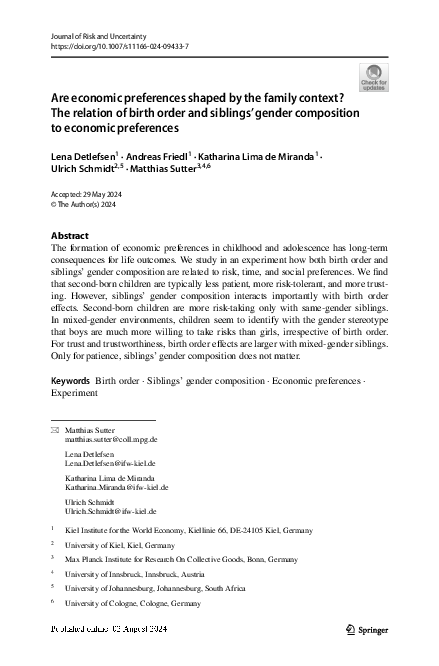Journal Article
Are economic preferences shaped by the family context? The relation of birth order and siblings’ gender composition to economic preferences
Authors
Publication Date
DOI
JEL Classification
Key Words
Related Topics
Behavioral Economics
The formation of economic preferences in childhood and adolescence has long-term consequences for life outcomes. We study in an experiment how both birth order and siblings’ gender composition are related to risk, time, and social references. We find that second-born children are typically less patient, more risk-tolerant, and more trusting. However, siblings’ gender composition interacts importantly with birth order effects. Second-born children are more risk-taking only with same-gender siblings. In mixed-gender environments, children seem to identify with the gender stereotype that boys are much more willing to take risks than girls, irrespective of birth order. For trust and trustworthiness, birth order effects are larger with mixed-gender siblings. Only for patience, siblings’ gender composition does not matter.






